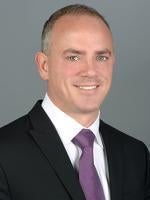In a significant opinion issued last week, the U.S. Court of Appeals for the Second Circuit held that the term "capacity," in the Telephone Consumer Protection Act's (TCPA) definition of "automatic telephone dialing system" (ATDS), is restricted to a device's current functions, absent any potential modifications to the device's hardware or software.
It is the second time in less than a week that a federal appellate court has rejected a plaintiff's attempt to rely on equipment's latent or potential functions to satisfy the ATDS requirement—potentially signaling a growing inclination by federal courts to more closely define what constitutes an ATDS.
These decisions come just a few months after ACA International, in which the U.S. Court of Appeals for the District of Columbia Circuit invalidated the Federal Communications Commission's (FCC) 2015 ruling that "capacity" requires consideration of whether features can be added to equipment through software changes or updates to cause it to function as an ATDS. (For our prior alerts on ACA International, and last week's decision by the U.S. Court of Appeals for the Third Circuit in Dominguez v. Yahoo, Inc. limiting the ATDS definition to equipment with present capacity, see here and here.)
In King v. Time Warner Cable, Inc., the district court granted summary judgment for the plaintiff, Araceli King, on her TCPA claim, concluding that Time Warner used an ATDS to call the plaintiff. Relying on the FCC's 2015 ruling, the district court held that Time Warner's system met the "low bar" of having the capacity to act as an ATDS, without considering whether that system had the current ability to perform the functions of an autodialer.
While King was on appeal, the D.C. Circuit decided ACA International. In view of ACA International, the Second Circuit held that it no longer owed any deference to the FCC's 2015 ruling and determined that it must independently consider whether the district court's broad understanding of "capacity" in the ATDS definition was proper.
In analyzing this question, the Second Circuit initially examined the plain meaning of "capacity," and determined that it did little to definitively rule in or out the narrow construction espoused by Time Warner, but concluded that a broad definition of the term was not necessary to address the particular legislative concern the TCPA was designed to address. The Second Circuit also reviewed the TCPA's legislative history and concluded that it also provided no definitive assistance, but at the same time did not foreclose a narrow interpretation of "capacity."
Most compelling to the Second Circuit was the reasoning of ACA International. Although the Second Circuit acknowledged that the D.C. Circuit in ACA International was only rejecting the FCC's interpretation of capacity as unreasonable, and not necessarily announcing the best interpretation of the statute, the Second Circuit nevertheless found the D.C. Circuit's reasoning informative. In particular, the Second Circuit was persuaded by the D.C. Circuit's distinction between a device that currently has features that enable it to perform the functions of an autodialer and a device that can perform those functions only if additional features are added.
Consistent with the D.C. Circuit's reasoning, in King, the Second Circuit held that capacity should be interpreted to refer to a device's current functions, absent any modifications to the device's hardware or software. That definition, the court stated, does not include every smart phone or computer that might be turned into an autodialer if properly reprogrammed, but it does include devices whose autodialing features can be activated by the equivalent of the simple flipping of a switch.
Within those bounds, the Second Circuit explained, courts may need to conduct a case-by-case investigation as to how much is needed to activate the device's autodialing potential. Notably, the court qualified its holding by making clear that the analysis of a device's current functions does not require that those functions were used on the particular calls that form the basis for the plaintiff's TCPA claim.
The Second Circuit in King concluded that it could not determine as a matter of law, one way or the other, whether Time Warner's autodialer had the ability to perform the functions of an ATDS, and so it remanded the case to the district court for consideration of that issue.
Together with the Third Circuit's recent decision in Dominguez, the Second Circuit's decision in King hopefully signals a post-ACA International trend among federal courts to more narrowly define ATDS, which will help rein in the deluge of TCPA litigation that has occurred in recent years.






 />i
/>i

